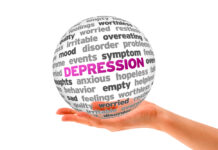From Stat News comes this opinion piece by psychologist Lucy Foulkes questioning the widely accepted wisdom that every awareness campaign is a good thing—and training an eye on research that suggests otherwise:
“Every day, it seems, is mental health awareness day. In the U.S., there’s Eating Disorders Awareness Week in February. May is National Mental Health Awareness Month, which includes National Children’s Mental Health Awareness Day. September is Suicide Prevention Awareness Month and in October we go global, with World Mental Health Day.
Mental health awareness campaigns work on a key principle, applied to everything from exam stress to suicidal thoughts: If we can get people to identify and understand their mental health problems, then they can access effective help and treatment. Awareness is good, in other words, because it should ultimately alleviate people’s distress. . . .
But as an academic psychologist who researches mental health in teenagers in particular, I’ve started to ask a tricky question: What if these well-intentioned campaigns are actually contributing to the problem? What if the more we encourage people — especially young people — to talk about their mental health, the worse they end up feeling? . . .
Some of these people are seriously unwell and badly need help. But there’s another, rather more subtle problem happening at the moment: I think the current conversation about mental health might be encouraging people to interpret their difficulties as mental health problems when they’re not, in a way that’s actively unhelpful for the individual.”
***
More from Around the Web
More from Mad in the Family















